A few weeks ago my boy came back to me and for a mere week we lived in bliss. Together, we took a long dusty road that eventually turned to gravel. There, in this lost world, we found the land my grandfather grew up on. His home, lost in some nameless Mississippi forest. It took my breath away, and left a profound affect on my Jeffrey. He wrote a piece on his expirence as I photographed the ghosts of my grandfather's past.
The Plot On Kersh Road.
There we stood, looking over the green vegetation in the plot your Grandfather grew up on. We left the car unlocked; you knew it would be safe. We walked up the hill. The ground was carpeted with some plant too thick to be grass but still green as the lass Kelly as she sailed here from the Irish Isles. Back dropped by the intense Mississippi sun, a glowing red circle retreating behind the bare pine twigs and the soil, auburn by the laying of the fallen debris over the Yazoo clay, to be able to simultaneously emerge as daybreak on the opposite side of the world. You photographed yourself among a grouping of buttercups around a tree. The tree was dead, that was for sure. But I was unsure whether its life had evaporated out of it along with the moisture that once filled its waterworks or if it was merely hibernating, as the bears and the beavers do, awaiting the Conquistador Spring to slay the existing Winter and allow the rebirth of all the living things that cease in the cold. You ask me to take your picture. The light construction of the Flexo was wobbly on top of your tripod. I looked into the viewfinder to find the image of you directly from 1949. You are lovingly youthful in that raiment of a pink dress and your auburn follicles. Classic is a word used to describe something that is timeless, and your beauty was, and always will be, timeless.
I found a depression left in the ground where the house used to stand. It is nothing physically deep or substantial, but in our minds its existence is our existence for this brief period of time. This was your Grandfather’s house. This was his yard. And your Great Grandmother planted these flowers. Your face becomes the brightest I have ever witnessed and open with excitement when I affirmed these questions you had. We walked along the tree line as you talked of the stories your Grandfather had told you of this place while you were growing up. I am not a sailor, but I was suspending in delight as I watched your lips, rose filled with the life of a young woman milling her actions into accomplishments, vivid between that youthful pink dress and the vast, infinite sky, moving to speak words in the foreground of the sun bleeding out its life over the brush and needles strewn across the forest floor.
We kept walking down the hill to find a spring streaming out from underneath the fields. This is where the water came from. Down the hill. Fill the pails. Back up the hill. We crossed the spring and ascended the hill on the other side, eager to see what other questions this land would force us to ask. Atop, we looked over the field that lied before us. This is where he grew his shared crop. This is where the work was done, and your Grandfather learned how to provide. Across the field and just in the tree line, we spotted a mess of bent up steel, red with rust as it had long since oxidized. We tried to figure out what it was. The springs were the clue that pinpointed the suspected answer. It must have been a bed or a cot or something someone was able to slumber soundlessly upon as the nights went on. We took photographs as documentation of our discovery and decided that the sun was on its last limit of life and turned to go for the night.
On our walk to the car, we stayed close together; we stirred as the crane flew from their rest among the stalks of the small plants underneath our feet. You shuddered a little bit, worried that they were going to get you. I pulled your waist against mine as we started to laugh over the incident. Your waist is small and dainty, yet powerful with the strength of the bone refuses to move as the skin does when it is pressed upon. We came across a fractured bone, debating at first, only to find an entire armadillo skeleton. It sat upon its back with its legs up in the air. White with the loss of nourishing chemicals mixed with the hardening of the bones underneath the open sun. These bones could last another couple of lifetimes, marking a passage through time that only the inanimate can see. You took more photographs to further document our discoveries before the light failed, and I poked at the stiff frame of the dead animal. We were in complete bliss with ourselves here.
We got into the car and began to drive away, back down Kersh Road. The road was lonely, car with a driver even thinking of taking this back stretch through the woods. And as I watched the lush green fields I had a thought of how to make us the happiest people within this existence. Buy some land. Or better yet, buy this land.
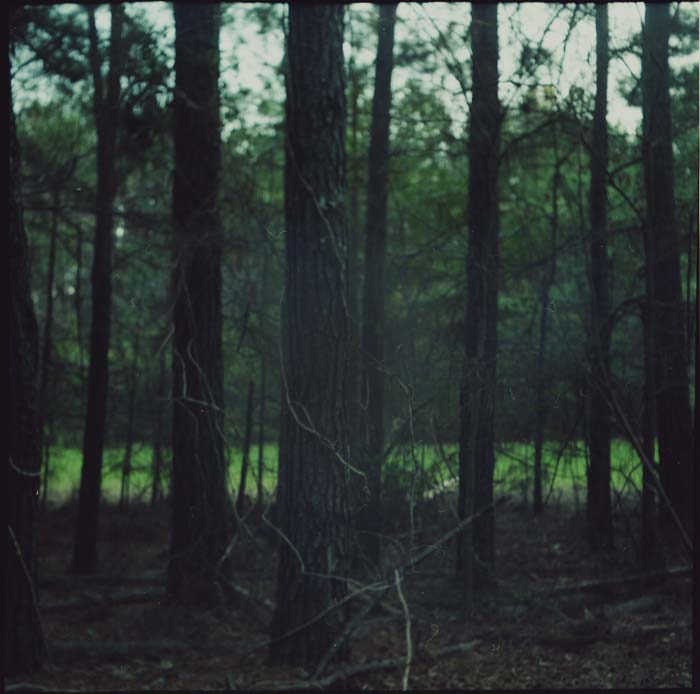
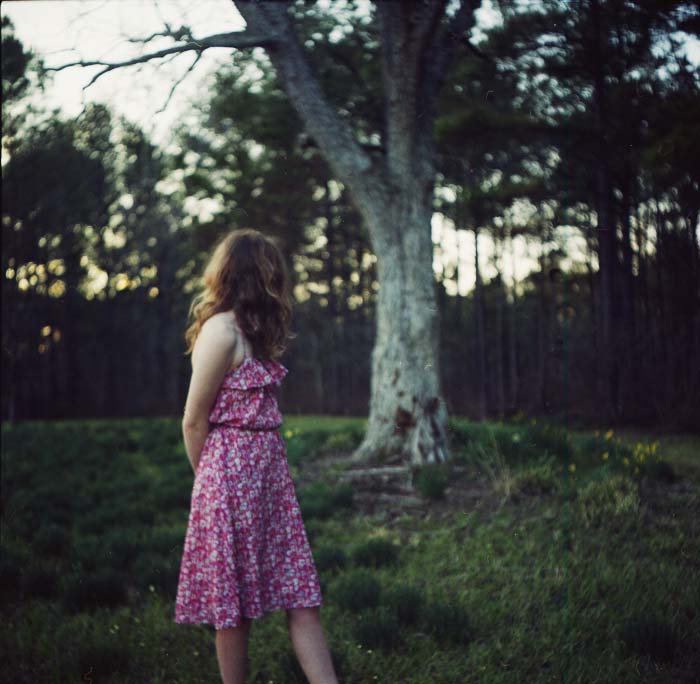
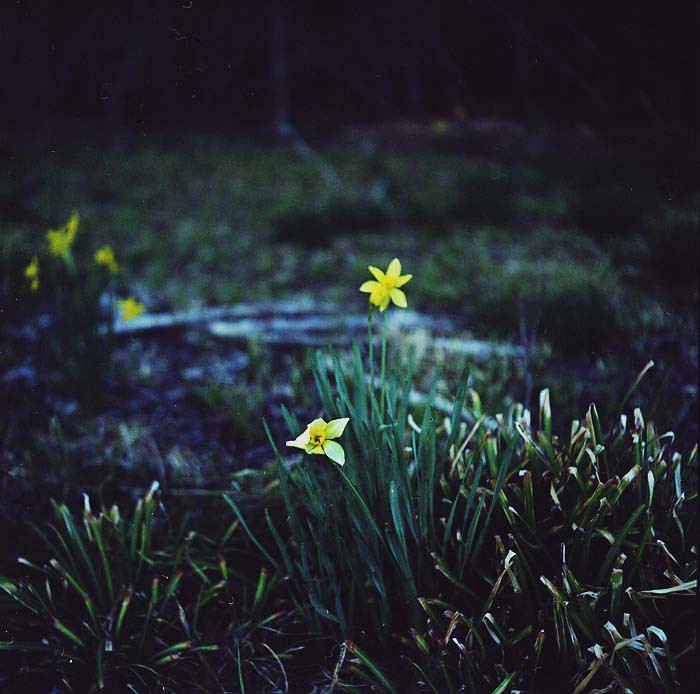
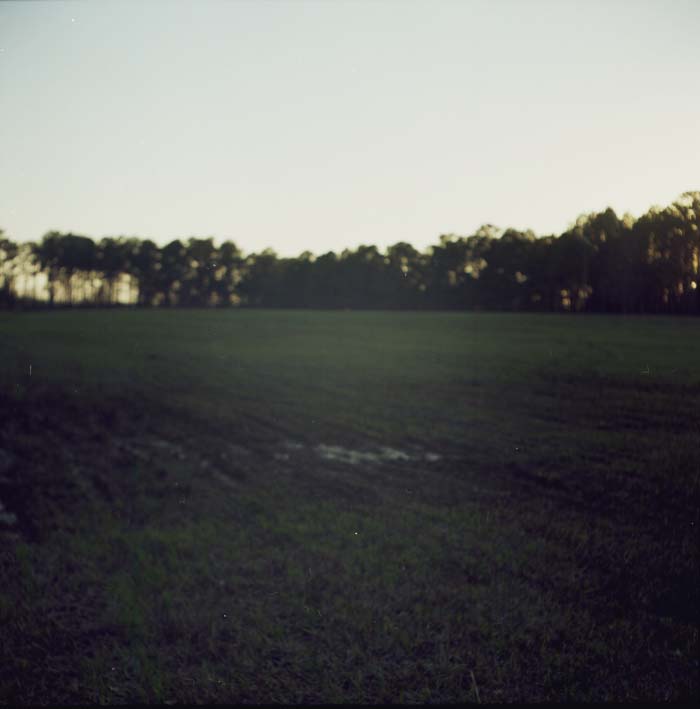
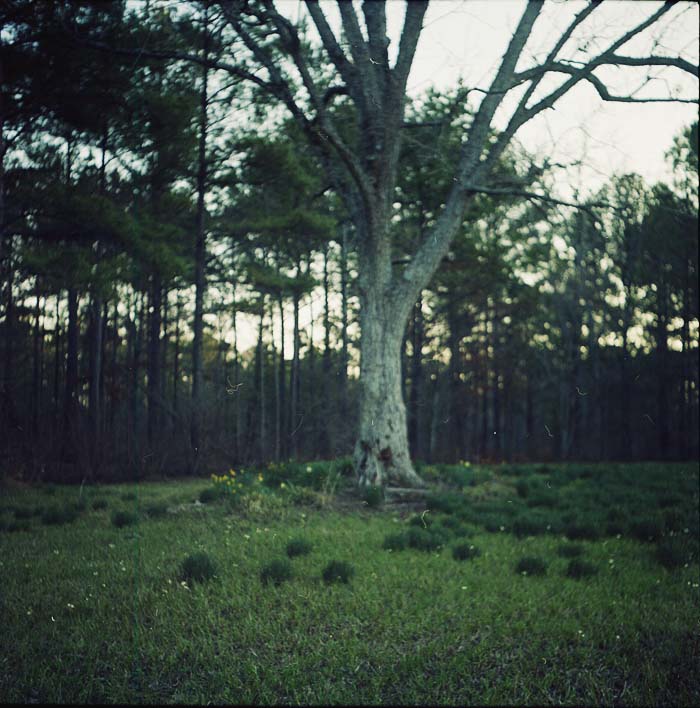
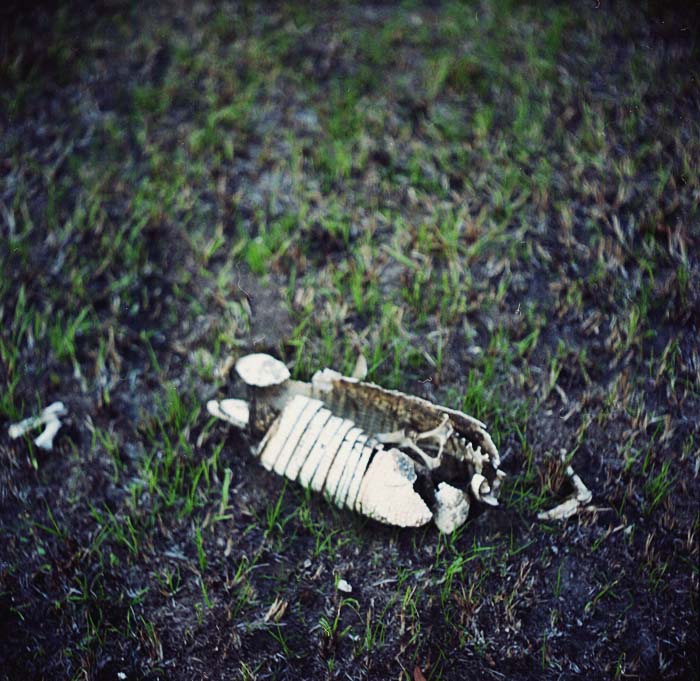


7 comments:
timeless
like he wrote.
..this beautiful green makes me happy and sad at same time.. love
Wow, what a beautiful experience. Just lovely to read.
The pictures match perfectly with the text!It's like I'm there and try to hear the story in the silence.And try to see them behind the trees.To follow their footmarks.
I love the green tones and the curly hair.
and the story...
thank you for your nice words :) which murakami book you read?
This is just great.
this is beauty.
Post a Comment